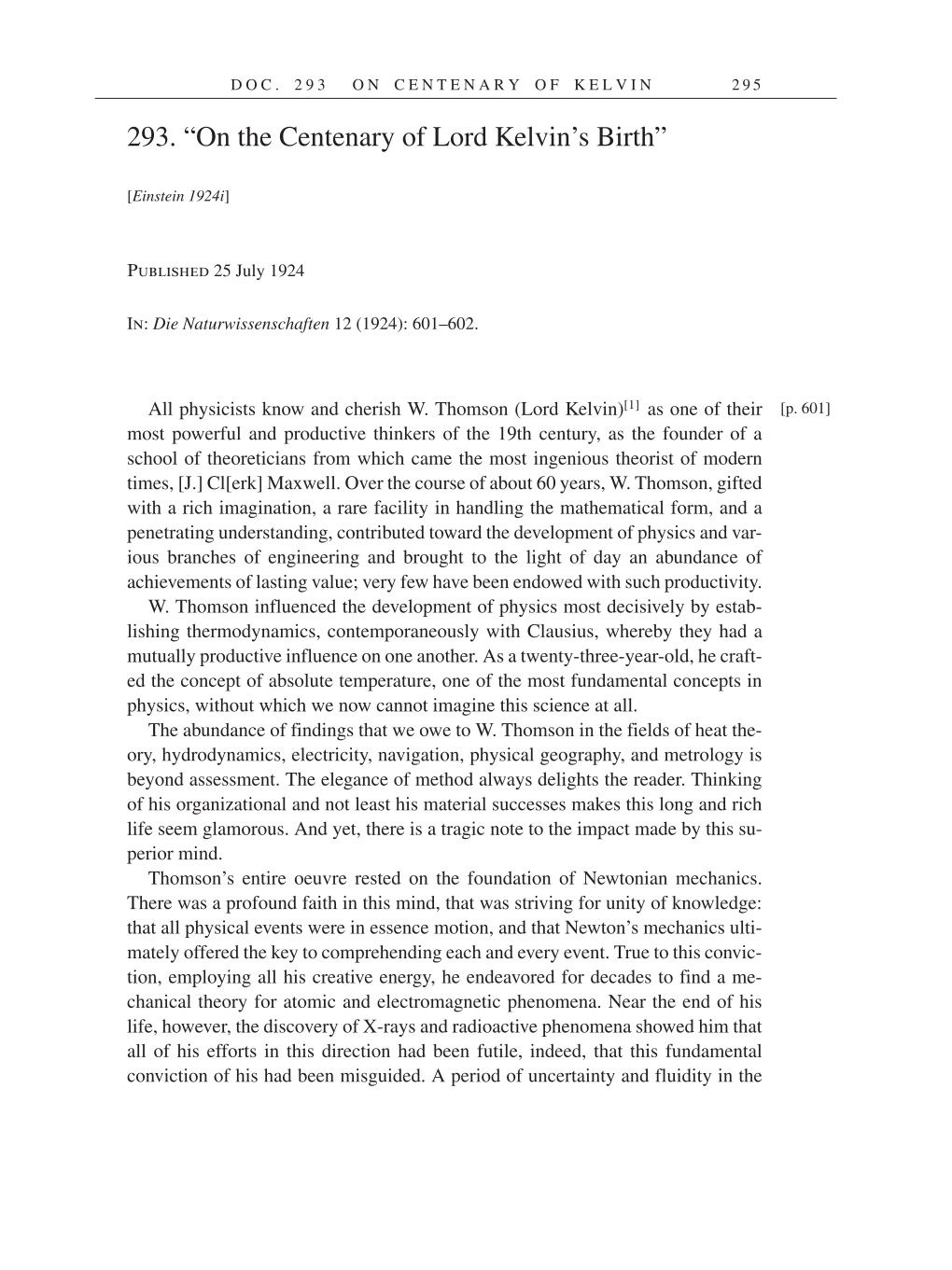D O C . 2 9 3 O N C E N T E N A R Y O F K E L V I N 2 9 5
293. “On the Centenary of Lord Kelvin’s Birth”
[Einstein 1924i]
Published 25 July 1924
In: Die Naturwissenschaften 12 (1924): 601–602.
All physicists know and cherish W. Thomson (Lord
Kelvin)[1]
as one of their
most powerful and productive thinkers of the 19th century, as the founder of a
school of theoreticians from which came the most ingenious theorist of modern
times, [J.] Cl[erk] Maxwell. Over the course of about 60 years, W. Thomson, gifted
with a rich imagination, a rare facility in handling the mathematical form, and a
penetrating understanding, contributed toward the development of physics and var-
ious branches of engineering and brought to the light of day an abundance of
achievements of lasting value; very few have been endowed with such productivity.
W. Thomson influenced the development of physics most decisively by estab-
lishing thermodynamics, contemporaneously with Clausius, whereby they had a
mutually productive influence on one another. As a twenty-three-year-old, he craft-
ed the concept of absolute temperature, one of the most fundamental concepts in
physics, without which we now cannot imagine this science at all.
The abundance of findings that we owe to W. Thomson in the fields of heat the-
ory, hydrodynamics, electricity, navigation, physical geography, and metrology is
beyond assessment. The elegance of method always delights the reader. Thinking
of his organizational and not least his material successes makes this long and rich
life seem glamorous. And yet, there is a tragic note to the impact made by this su-
perior mind.
Thomson’s entire oeuvre rested on the foundation of Newtonian mechanics.
There was a profound faith in this mind, that was striving for unity of knowledge:
that all physical events were in essence motion, and that Newton’s mechanics ulti-
mately offered the key to comprehending each and every event. True to this convic-
tion, employing all his creative energy, he endeavored for decades to find a me-
chanical theory for atomic and electromagnetic phenomena. Near the end of his
life, however, the discovery of X-rays and radioactive phenomena showed him that
all of his efforts in this direction had been futile, indeed, that this fundamental
conviction of his had been misguided. A period of uncertainty and fluidity in the
[p. 601]
